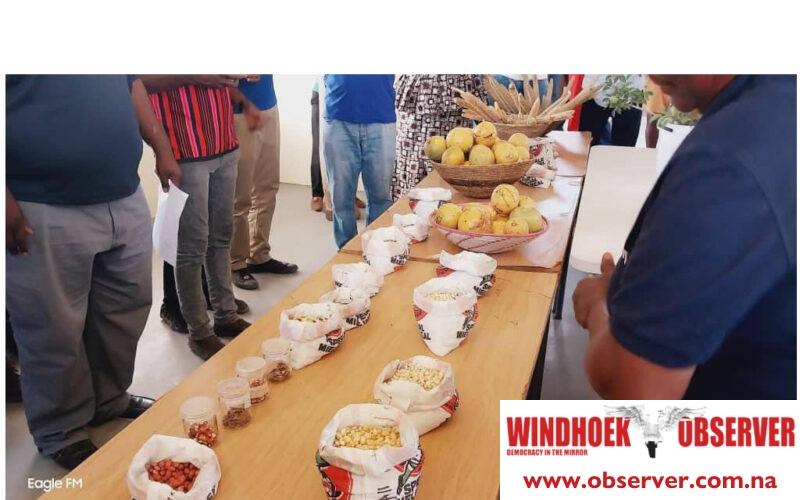Martin Endjala
The first community Seed Bank at Sharukwe village in the Kavango West Region is said to be a crucial repository for local seeds.
The project is funded by the Environmental Investment Fund (EIF), Mobile Telecommunication (MTC), and Deutsche Gesellschaft für Internationale Zusammenarbeit (GIZ).
The sponsorship signifies a crucial moment in preserving biodiversity and ensuring food security, with an investment exceeding N$500,000.
The primary objective of the Sharukwe Seed Bank is to safeguard natural resources by preventing the over-exploitation of various seed varieties.
This proactive intervention is said to not only prevent resource depletion but also ensure the preservation of seeds for the benefit of future generations.
While the immediate impact is felt in Kavango West, it is significance is further said to resonate nationally, contributing significantly to Namibia’s overall food security.
According to the Director of Forestry in the Ministry of Environment, Forestry, and Tourism, Johnson Ndokosho, the government affirmed its commitment to expanding such infrastructure.
“The Ministry is going to continue to establish this type of infrastructure; we are planning to construct one in Kavango East and around the Ndiyona area, then another one in Omusati, and another one in the Oshikoto Region in the coming five years,” said Ndokosho.
He said Community Seed Banks play a pivotal role in collecting, storing and protecting local seeds. In times of crop damage or destruction, these banks serve as an emergency seed supply, ensuring farmers can access seeds for the next planting season.
Ndokosho explained that although Namibia embarked on its first community seed bank journey in 2023, neighbouring countries like Zambia, South Africa and Zimbabwe have long embraced this practice, with Zimbabwe boasting an impressive 26 community seed banks.
The Sharukwe Seed Bank, situated in the Ncuncuni Constituency, Ndokosho said aligns with the Social Development Goals of Namibia, integrating sustainable development into all aspects of its operations.
Beyond safeguarding seeds, Ndokosho said the project emphasises the broader goal of protecting natural resources, promoting environmental sustainability, and ensuring that Namibia’s future generations have access to diverse and resilient agricultural resources.
Kavango West Governor Sirkka Ausiku called on other private entities to support similar community upliftment projects across the country, with an emphasis that the Sharukwe Seed Bank’s inauguration reflects a collaborative effort with a shared vision for environmental sustainability.
The inauguration stems from the Memorandum of Agreement signed between EIF and MTC. Lot Ndamanomhata, EIF Manager for Corporate Communications, highlighted that the initiative extends beyond just financial backing as it embodies a shared commitment to environmental sustainability and the preservation of natural heritage.
MTC’s Fikameni Mathias emphasised the need to preserve traditional ways of life through seed banking.
“Just as much as we speak about smart farming or smart crop production, we now need to talk about preserving the fruits we eat today to ensure that those who will come after us must enjoy the same food and fruits” he said.




